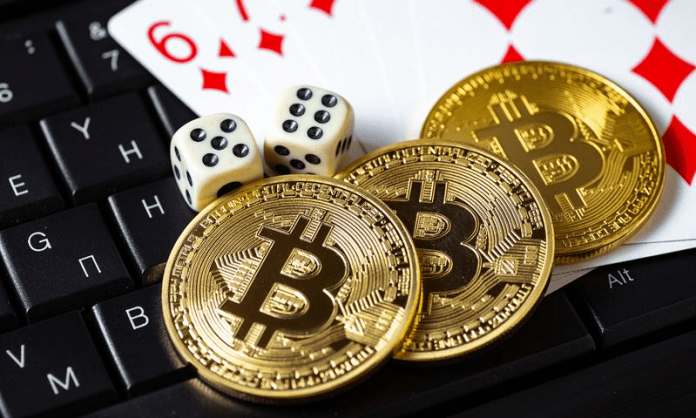
In the ever-evolving world of digital currency, Bitcoin casinos have carved a significant niche. As an affiliate or marketer, venturing into this niche can be highly rewarding, but it’s not without its legal complexities.
The decentralized nature of Bitcoin, coupled with the dynamic legal landscape of online gambling, presents a unique set of considerations that need careful understanding. This article outlines the key legal issues that affiliates and marketers must be aware of before embarking on any partnership with Bitcoin casinos.
Understanding the Legal Landscape of Bitcoin Casinos
Before anything else, it’s vital to understand the legal status of Bitcoin casinos in the regions where you intend to market them. The legalities can vary widely from country to country, or even within regions of the same country.
Online casinos that use Bitcoin are generally subject to the same regulations as traditional online casinos. However, as Bitcoin is a decentralized currency, it poses unique challenges for regulatory bodies. The pseudonymous nature of transactions, potential for money laundering, and other risk factors have led some countries to impose stricter rules or even outright ban Bitcoin casinos.
Conversely, other jurisdictions have embraced Bitcoin casinos, considering them legal and regulating them under existing gambling laws. Examples include:
- UK: The UK Gambling Commission allows Bitcoin gambling, provided the casino holds a valid license.
- Malta: The Malta Gaming Authority acknowledges Bitcoin as a method of payment, and it requires all casinos to follow its licensing rules.
- Curacao: It’s one of the most popular jurisdictions for Bitcoin casinos, with a special licensing system in place.
Importance of License Validation
As an affiliate or marketer, it’s paramount to partner with Bitcoin casinos that have obtained licenses from recognized regulatory bodies. This not only gives the operation a stamp of legitimacy but also provides protection to players.
Remember, as an affiliate, you are not merely recommending a casino but indirectly participating in its operations. Any legal action against an unlicensed casino could also implicate its affiliates, damaging reputations and potentially resulting in financial penalties.
Understanding Bitcoin’s Legal Status
Even as more jurisdictions warm up to the idea of Bitcoin casinos, the legal status of Bitcoin itself is still an area of concern. Bitcoin isn’t recognized as a legal tender in many countries, which directly affects how Bitcoin casinos operate and how you market them.
- In countries where Bitcoin is deemed as a commodity or a property (such as the USA), Bitcoin casinos may require additional licenses or face specific tax implications.
- In countries where Bitcoin is banned (like in Bangladesh, Nepal, or Morocco), marketing a Bitcoin casino can lead to serious legal repercussions.
Keeping updated with the legal status of Bitcoin and how this impacts Bitcoin casinos in your target markets will ensure that you stay on the right side of the law.
Complying with Advertising Standards
Beyond licensing and the legal status of Bitcoin, affiliates and marketers of the best Bitcoin casinos must also comply with advertising standards and laws.. These rules can vary significantly from one jurisdiction to another, so understanding and adhering to each jurisdiction’s advertising laws is crucial.
Violation of these laws can result in penalties, including fines, and in some cases, revocation of advertising privileges.
Key Advertising Standards
While the specific laws vary, certain principles are universal. They include:
- Truth in Advertising: All marketing content must be truthful and not misleading. This means not exaggerating the potential returns or downplaying the risks involved in Bitcoin gambling.
- Age Restrictions: Most jurisdictions have strict rules on marketing gambling activities to minors. Age verification processes must be highlighted in your promotions.
- Responsible Gambling: Promoting responsible gambling is a requirement in many jurisdictions. This includes messaging about gambling addiction and resources for those who might need help.
Data Protection and Privacy Considerations
The emergence of data protection laws like Europe’s General Data Protection Regulation (GDPR) and the California Consumer Privacy Act (CCPA) in the United States has had a significant impact on how businesses, including affiliates and marketers, handle customer data.
It’s vital to ensure you are handling and processing user data in line with the relevant data protection laws. This includes:
- Obtaining explicit consent from users before collecting and processing their data.
- Ensuring the data is stored securely and that you have measures in place to respond to data breaches.
- Providing clear mechanisms for users to withdraw their consent and request the deletion of their data.
Failure to adhere to these principles could lead to significant fines and legal repercussions, which can damage your reputation and business.
Conclusion
As an affiliate or marketer for Bitcoin casinos, your role extends beyond promotion. You are part of an intricate web that includes players, regulatory bodies, and the casinos themselves.
The legal considerations outlined in this article underscore the importance of due diligence and ongoing education. Staying informed and adhering to local laws and international standards will not only protect you from potential legal action but also contribute to a safer and more responsible gambling environment.




